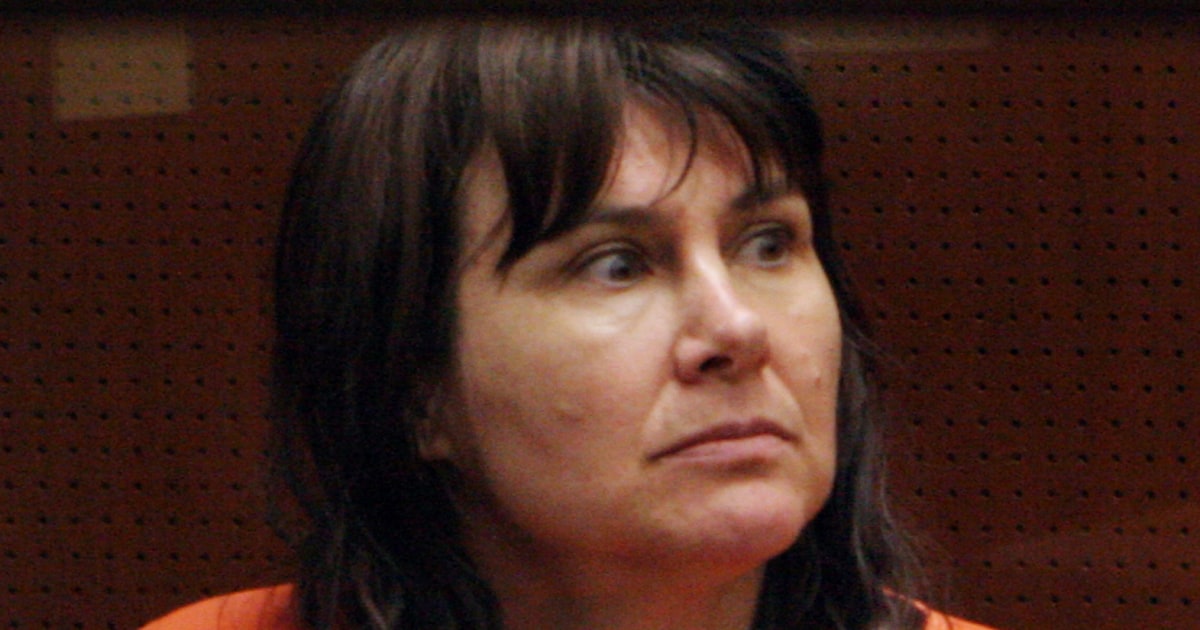A former Los Angeles police detective who killed a romantic rival and concealed the murder for more than two decades will not be paroled, reversing an earlier decision that found she was suitable for release, a lawyer for the victim’s family said Wednesday.
In a statement, a spokesperson for the family of victim Sherri Rasmussen said the reversal of Stephanie Lazarus’ grant of parole came after a 90 minute hearing before three commissioners from the California Parole Board.
Family lawyer John Taylor said Rasmussen’s relatives were pleased with the decision.
“Lazarus had her parole time up front, evading arrest for 23 years after the murder,” Taylor said in a statement. “She has expressed no remorse for the cold-blooded execution of Sherri Rasmussen committed while she was an LAPD officer. It’s unfair to the family that she should now go free and enjoy her life while receiving her LAPD pension.”
A spokesperson for the California Department of Corrections and Rehabilitation, the board’s parent agency, did not immediately respond to a request for comment, nor did a lawyer for Lazarus.
Rasmussen, a 29-year-old nurse, was gunned down in her Los Angeles-area apartment on Feb. 24, 1986. Lazarus, a Los Angeles Police Department art theft detective who was then an officer in her mid-20s, previously dated a man whom Rasmussen married.
The lead investigator in the case has said that Lazarus entered Rasmussen’s condo, struck her in the head with a vase and shot her three times in the chest using a pillow as an improvised silencer. She then staged the killing to look like a robbery, the investigator, Greg Stearns, previously said at a parole hearing for Lazarus.
DNA left at the crime scene later linked Lazarus to the killing. She was arrested in 2009 and convicted of first-degree murder three years later, after asserting her innocence at trial.
Lazarus was found suitable for parole after a hearing last November by a commissioner who partly cited her young age at the time of the killing — recent California legislation has sought to shift how people under the age of 26 are handled within the criminal justice system — and said Lazarus didn’t pose a risk if she were released, a transcript of the hearing shows.
Rasmussen’s family challenged that finding, saying Lazarus didn’t appear remorseful and questioning why the board relied on the state’s youthful offender law in her case.
At the time of the killing, Lazarus, who was then almost 26 and had been a police officer for two years, had passed psychological evaluations that allowed her to become a police officer and carry a gun, the family said.
During the November hearing, Lazarus said she had no intention of killing Rasmussen when she went to her home, according to the transcript. She said she had gone to the couple’s condo to talk to her ex, who was not there at the time of the killing.
Lazarus said she didn’t turn herself in after because she was ashamed, according to the transcript.
After the board found Lazarus suitable for release, California Gov. Gavin Newsom said while she had an excellent disciplinary record and had sought to improve herself while behind bars, she hadn’t begun to take full responsibility for the murder until she was caught.
A separate panel that cited the governor’s letter said the decision to release Lazarus deserved additional scrutiny because it may have been “improvident.”

Leave a Reply